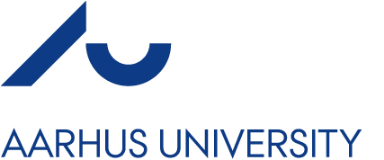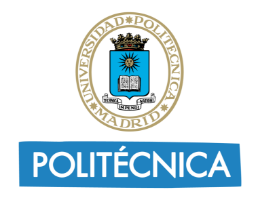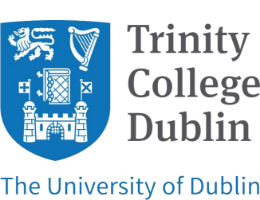Partners

The Helmholtz Centre for Environmental Research (UFZ), Germany, was established in 1991 and is one of the world’s leading research centres in the field of environmental research, enjoying high social recognition. It demonstrates ways in which sustainable use of natural resources is possible for the benefit of both mankind and the environment. The UFZ currently employs around 1100 people across 38 departments focussing on the following research areas in a highly integrative manner: (i) Environment and Society, (ii) Ecosystems of the Future, (iii) Water Resources and Environment, (iv) Chemicals in the Environment, (v) Environmental Engineering and Biotechnology, (vi) Smart Models and Monitoring.

The foundation of Naturalis Biodiversity Center is their fascination for biodiversity. In their award-winning museum (European Museum of the Year 2021) they show the beauty of nature. Through their impressive collection, knowledge and data, they record all life on Earth. This is important, as our future depends on biodiversity. Everything in nature is connected, and balance is vitally important for its continued existence. They research nature in order to preserve biodiversity. This is how they contribute to solutions for major, global issues involving climate, living environment, food supply and medicine.

The Spanish National Research Council (CSIC) is the largest public research institution in Spain and one of the most renowned institutions in the European Research Area (ERA). Its mission is to promote, coordinate, develop and disseminate scientific and technological multidisciplinary research, in order to contribute to the progress of knowledge and economic, social and cultural development; as well as to train researchers and provide advice to public and private entities in these fields. Within CSIC, Estación Biológica de Doñana is the leading research center in Ecology and Evolution, with ample experience participating in EU projects. Its pioneer work on the study of the status and trends of pollinators is pivotal for ANTENNA.

Established in 1928, Aarhus University has since developed into a major Danish university with a strong international reputation across the entire research spectrum. Rooted in strong disciplines, researchers and students have been generating new knowledge there for over 90 years. Aarhus University is Denmark’s second-largest university, with 38,000 students, five faculties, research activities all over the country and campuses in Aarhus, Herning and Emdrup.
Research and education of the highest international quality are at the core of our mission, and strong partnerships with our society are at the heart of our activities. Thanks to its size and reputation as a leading research-intensive university, Aarhus University has strong impact and influence across the entire spectrum of disciplines, locally, nationally and globally. Today, Aarhus ranks among the top 100 universities in the world in several international rankings – out of over 17,000 universities worldwide.

The University of the Aegean (UAegean) is dedicated to conducting high level research and qualitative teaching on contemporary dynamic study subjects serving the economic and social development of the country, the cohesion of the European area and the values of a universal culture, of which the Archipelagos is an integral part. (Re) founded in 1984, the UAegean aims to introduce new approaches in tertiary education and promote regional development through innovative educational programs and interdisciplinary fields of study and research. The twofold aim of UAegean, i.e. focusing on academic excellence and development and unifying the geographically fragmented and culturally diverse Aegean area, with respect to its particular features, has been accomplished through the effective organisation and interconnection of academic and administrative units and the standardisation of required procedures via the use of ICTs and the multifarious connection and mutual support to local communities and their agencies.

The Technical University of Madrid, sometimes called Universidad Politécnica de Madrid (UPM), is a public university in Madrid, Spain. It was founded in 1971 as the result of merging different Technical Schools of Engineering and Architecture, originating mainly in the 18th century. Over 35,000 students attend classes during the year. According to the annual university ranking conducted by El Mundo, the Technical University of Madrid ranks as the top technical university in Spain, and second overall. The majority of its Engineering Schools are consistently ranked as leading academic institutions in Spain in their fields, and among the very best in Europe.

Trinity College, officially The College of the Holy and Undivided Trinity of Queen Elizabeth near Dublin, is the sole constituent college of the University of Dublin, a research university in Dublin, Ireland. Queen Elizabeth I issued a royal charter for the college in 1592 as "the mother of a university" that was modelled after the collegiate universities of both Oxford and Cambridge, but unlike these affiliated institutions, only one college was ever established; as such, the designations "Trinity College" and "University of Dublin" are usually synonymous for administrative purposes.
Trinity is Ireland's oldest university with a reputation as a research-intensive centre. Academically, it is divided into three faculties comprising 23 schools, offering degree and diploma courses at both undergraduate and postgraduate levels. The admission procedure is based exclusively on academic merit, with the college being known for programmes in law, literature and humanities.
Trinity College Dublin is one of the seven ancient universities of Great Britain and Ireland, and it is a sister college to both St John's College, Cambridge, and Oriel College, Oxford. By incorporation, a graduate of Dublin, Oxford or Cambridge can be conferred the equivalent degree at either of the other two without further examination. The Library of Trinity College is a legal deposit for Ireland and the United Kingdom, being the largest library in the country and housing the Book of Kells since 1661.
Over the past two decades, Pensoft Publishers has been at the forefront of planning, managing, and executing dissemination and communication activities for a wide range of global, EU and national theoretical and applied research projects. With extensive experience gained through participation in more than 60 initiatives funded under FP6, FP7, Horizon 2020, and Horizon Europe - as well as by other European and national funding institutions, such as the German Federal Ministry of Education and Research, Biodiversa, Biodiversa+, and COST Actions - Pensoft has built a strong track record in science communication. Today, the Project department contributes to more than 35 Horizon Europe projects, taking the key role of dissemination, communication and exploitation work package leader. In addition to its strong expertise in science communication, Pensoft is an established open-access scientific publisher, renowned for its innovative journals and advanced publishing technologies that support the dissemination and semantic enrichment of research data and results.
Pensoft is tasked with creating and maintaining a clear and recognisable project brand, promotional materials, website, social network profiles, internal communication platform (ICP) and online libraries, as well as development and implementation of PEDR and DMP.